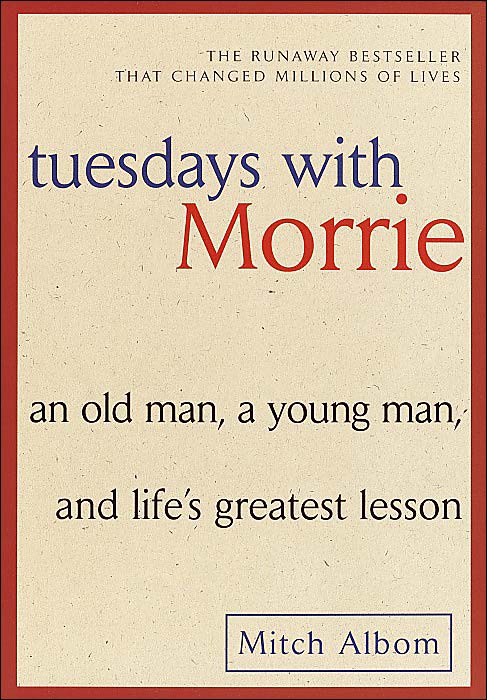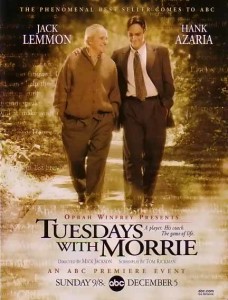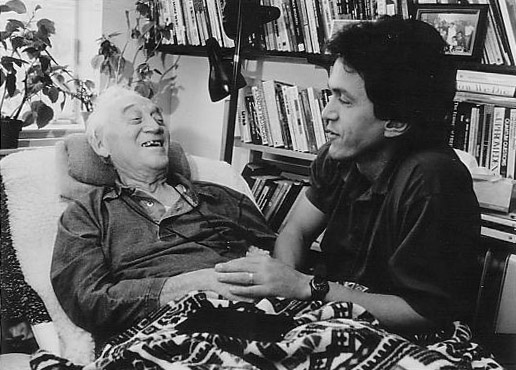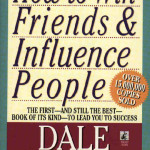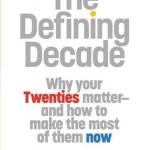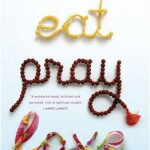“Death ends a life, not a relationship.”
Maybe it was a grandparent, or a teacher, or a colleague. Someone older, patient and wise, who understood you when you were young and searching, helped you see the world as a more profound place, gave you sound advice to help you make your way through it.
For Mitch Albom, that person was Morrie Schwartz, his college professor from nearly twenty years ago.
Maybe, like Mitch, you lost track of this mentor as you made your way, and the insights faded, and the world seemed colder. Wouldn’t you like to see that person again, ask the bigger questions that still haunt you, receive wisdom for your busy life today the way you once did when you were younger?
Mitch Albom had that second chance. He rediscovered Morrie in the last months of the older man’s life. Knowing he was dying, Morrie visited with Mitch in his study every Tuesday, just as they used to back in college. Their rekindled relationship turned into one final “class”: lessons in how to live.
Tuesdays with Morrie is a magical chronicle of their time together, through which Mitch shares Morrie’s lasting gift with the world.
It’s been ten years since Mitch Albom first shared the wisdom of Morrie Schwartz with the world. Now–twelve million copies later–in a new afterword, Mitch Albom reflects again on the meaning of Morrie’s life lessons and the gentle, irrevocable impact of their Tuesday sessions all those years ago. . . [From: Amazon.com]
“Accept who you are; and revel in it.”
Newspaper sports columnist Mitch Albom recounts the time spent with his 78-year-old sociology professor, Morrie Schwartz, at Brandeis University, who was dying from amyotrophic lateral sclerosis (ALS). Albom, a former student of Schwartz, had not corresponded with him since attending his college classes 16 years earlier. The first three chapters incorporate an ambiguous introduction to the final conversation between Albom and Schwartz, a brief flashback to Albom’s graduation, and an account of the events Albom experienced between graduation and the reunion with his professor. The name Morrie comes from its meaning in Hebrew (mori מורי), which means “my teacher.”
Albom is a successful sports columnist for the Detroit Free Press despite his childhood dream of being a pianist. After seeing Schwartz on Night line, Albom called Schwartz, who remembered his former pupil despite the lapse of 16 years. Albom was prompted to travel from Michigan to Massachusetts to visit Schwartz. A newspaper strike frees Albom to commute weekly, Tuesdays, to visit with Schwartz. The resulting book is based on these fourteen Tuesdays they meet, supplemented with Schwartz’s lectures and life experiences and interspersed with flashbacks and allusions to contemporary events.
Schwartz’s and Albom’s conversations canvas acceptance, communication, love, values, openness, and happiness. Albom emphasizes the importance of forging a culture of one’s own to transcend the tyranny of popular culture, suggesting that the media are preoccupied with death, hatred, violence and depression. Misquoting his favorite poet, W. H. Auden, Schwartz insists we must “love each other or perish”.
Throughout the text Albom’s character changes as Schwartz’s stories inspire him. Albom brings food to Schwartz at every visit, an affirmation of life and health. It is the only gift besides company that Albom is able to provide to Schwartz in his suffering. [From: Wikipedia.com]
“The truth is, once you learn how to die,
you learn how to live.”
Most of us, at some point in our schooling, have had a teacher who had a major impact on our thinking and the way we’ve lived our lives. What a treat would it be now, all these years later, to reacquaint ourselves with that treasure advisor, to learn again those lessons he or she shared when we were young. Mitch Albom was given that opportunity. He spent several months regularly visiting his college professor, Morrie Schwartz, during the elder man’s final year of life. Tuesdays with Morrie is Albom’s best-selling tribute to the man who gave him so much. [A Review From: Barnesandnoble.com]
“Life is a series of pulls back and forth… A tension of opposites, like a pull on a rubber band. Most of us live somewhere in the middle. A wrestling match…Which side wins? Love wins. Love always wins”
This brilliant little book was made into a brilliant little TV Movie which won 4 Emmy awards. My wife and I loved the book and the movie – Hank Azaria played Mitch Albom and the late, great Jack Lemmon played Morrie. I think it is something we would return to again and again….
Award-winning sportswriter Albom was a student at Brandeis University, some two decades ago, of sociologist Morrie Schwartz. Here Albom recounts how, recently, as the old man was dying, he renewed his warm relationship with his revered mentor.
This is the vivid record of the teacher’s battle with muscle-wasting amyotrophic lateral sclerosis, or Lou Gehrig’s disease. The dying man, largely because of his life-affirming attitude toward his death-dealing illness, became a sort of thanatopic guru, and was the subject of three Ted Koppel interviews on ‘Nightline.’ That was how the author first learned of Morrie’s condition. Albom well fulfilled the age-old obligation to visit the sick. He calls his weekly visits to his teacher his last class, and the present book a term paper. The subject: The Meaning of Life. Unfortunately, but surely not surprisingly, those relying on this text will not actually learn The Meaning of Life here. Albom does not present a full transcript of the regular Tuesday talks. Rather, he expands a little on the professor’s aphorisms, which are, to be sure, unassailable. ‘Love is the only rational act,’ Morrie said. ‘Love each other or perish,’ he warned, quoting Auden. Albom learned well the teaching that ‘death ends a life, not a relationship.’ The love between the old man and the younger one is manifest.
This book, small and easily digested, stopping just short of the maudlin and the mawkish, is on the whole sincere, sentimental, and skillful. (The substantial costs of Morrie’s last illness, Albom tells us, were partly defrayed by the publisher’s advance). Place it under the heading ‘Inspirational.’
‘Death,’ said Morrie, ‘is as natural as life. It’s partof the deal we made.’ If that is so (and it’s not a notion quickly gainsaid), this book could well have been called ‘The Art of the Deal.’ [From: Kirkusreviews.com]
“Don’t let go too soon, but don’t hold on too long.”
If you like this story, CLICK HERE to join the tribe of success-minded people just like you. You will love our weekly quick summaries of top stories, talks, books, movies, music and more with handy downloadable guides, cheat sheets, cliffs notes and quote books.
